To address the need to improve youth capacity for collective community engagement that transcends inequalities and celebrates diversity at community level, WHO Sri Lanka, the United Nations Development Programme (UNDP) and the United Nations Volunteers (UNV), partnered with the National Youth Services Council (NYSC) and the Ministry of Youth and Sports, to implement the programme – ‘Youth Participation and Engagement for a Healthier, Equitable, Safer and United Sri Lanka’.
This programme is part of WHO’s Global Health for Peace Initiative (GHPI) and uses the Healthy Settings Approach as a tool. GHPI involves building on the WHO’s technical competencies, legitimacy, relationships and convening power in health to address conflict, strengthen resilience to violence and empower people to (re)build peaceful relations with each other. The innovativeness of this approach is that “health programmes can be used not only to work in conflict but also to work on conflict”.
In Sri Lanka, young people in the age-group 15 to 29 years represent around 23% of the population. The National Human Development Report 2014 shows that although 71.5% of youth in Sri Lanka exercise their right to vote, only a small fraction is directly engaged in meaningful civic participation. As such, ‘health’ provides a unifying and holistic approach for young people to come together and collectively engage to improve the personal and community wellbeing.
Initiated in February 2021 and supported by the United Nations Peacebuilding Fund (PBF) as part of its ‘Youth Promotion Initiative’ (YPI) the programme aims to build the capacity of 540 youth community leaders from across the country. As the state counterpart, NYSC plays a crucial role in ensuring the engagement of the National Youth Parliament and the National Federation of Youth Clubs, platforms which work as a springboard for leadership roles. Furthermore, the partner Civil Society Organizations (CSOs), Sarvodaya and Sevalanka, have been instrumental in ensuring engagement of youth leaders at community level.
The programme is founded on the three core principles – healthy settings, sustainable development and voluntary community engagement, selected through expert consultations and a youth perception survey and uses a 5-phase journey on capacity building; community assessment; programme design, implementation and evaluation; policy development; and community empowerment.
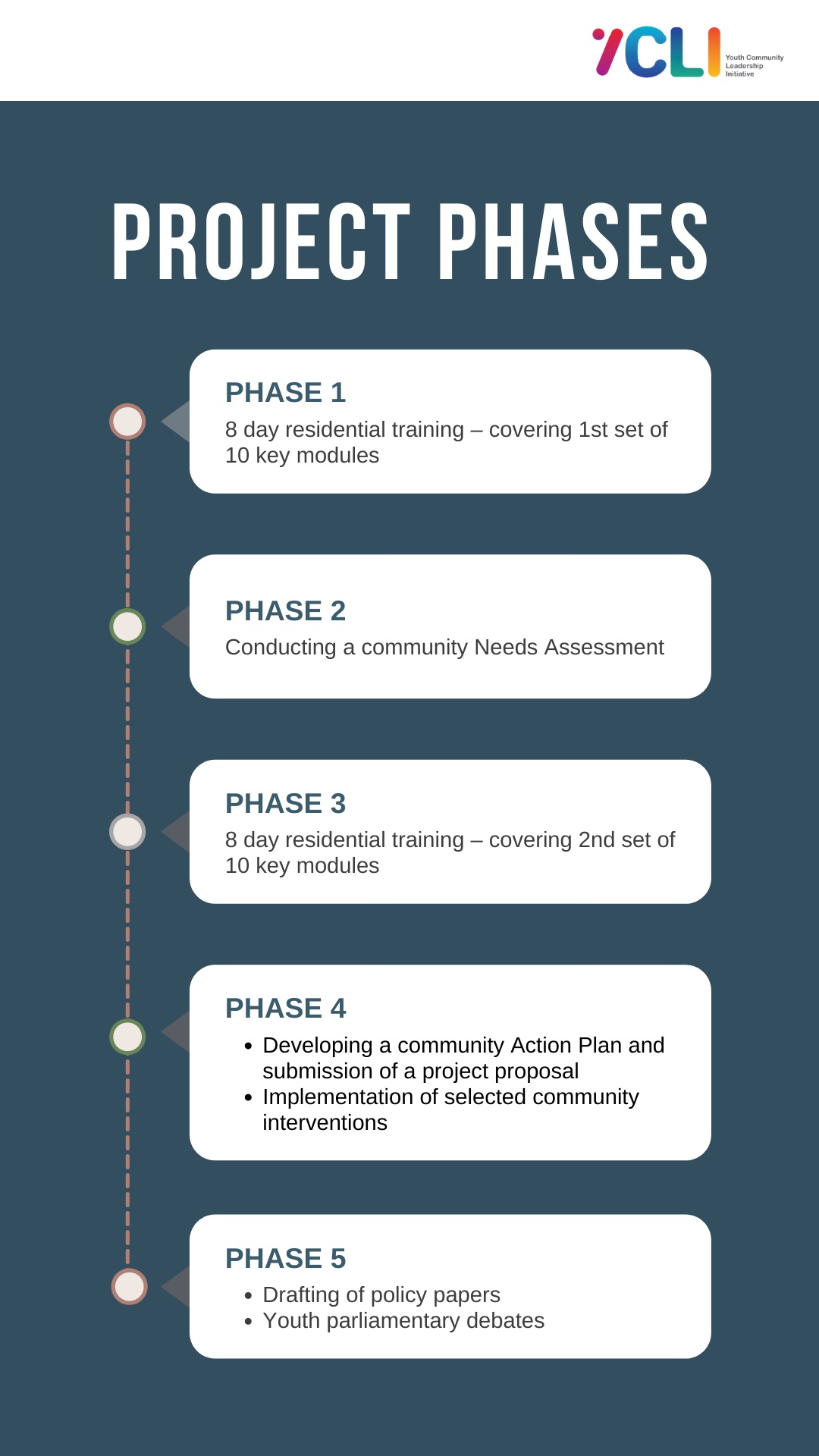
The ongoing Phase 1 of YCLI comprises of an eight-day residential training programme covering ten foundational modules including Healthy Settings Approach, Healthy Lifestyles for Young Leaders, Gender Equity and Empowerment, Effective Communication, SDGs in Action, Do No Harm, Collective Leadership and Community Needs Assessments. Up to now 349 youth – 197 males and 152 females – have undergone training. To boost creative thought and engagement, the modules were augmented by several interactive installations and activities. They included the Wheel of Volunteerism, Chronicles Letter Wall, Conflict Transformation Journey Mapping, Johari’s Window, Cross the Line and a campfire.
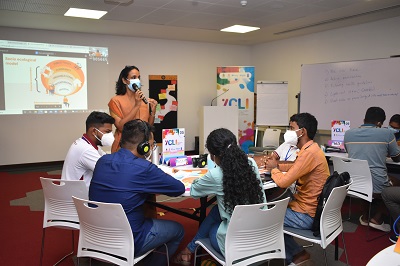
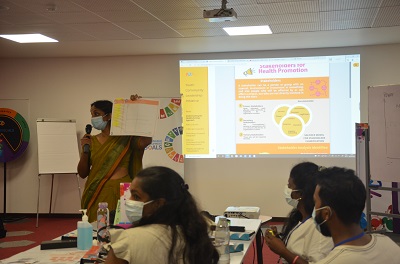
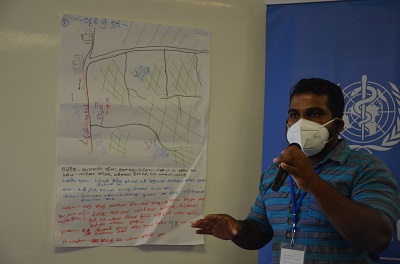
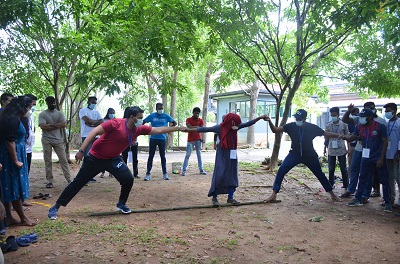
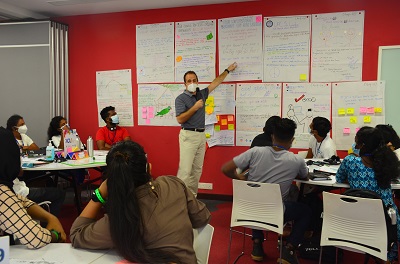
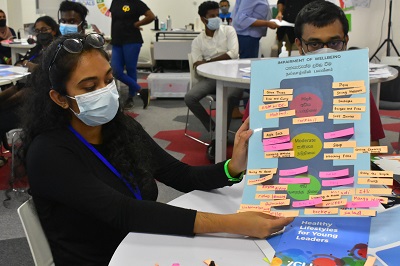
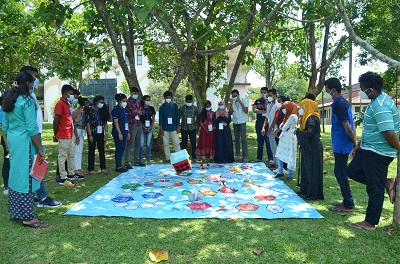
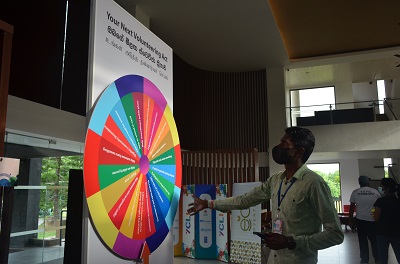
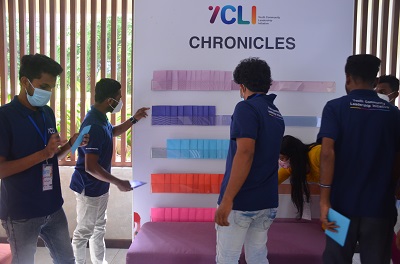
Note: Recognizing the potential to position youth at the forefront of solutions that work not only for themselves, but also for their communities, the World Health Organization (WHO) Sri Lanka Office is using the ‘Healthy Settings Approach’ as an innovative entry point to engage with potential young leaders. The Settings Approach was introduced through the Ottawa Charter for Health Promotion in 1986 and creates and improves measures in physical and social environments by targeting 5 specific areas of health promotion: building policies; creating supportive environments; strengthening community action; personal skill development; and reorienting services.
Key related resources
- WHO Global Health for Peace Initiative (GHPI): https://www.who.int/initiatives/who-health-and-peace-initiative
- Healthy settings in Sri Lanka (Jaffna District Case Study): https://www.who.int/srilanka/news/detail/22-04-2022-jaffna-healthy-city---full-steam-ahead-with-who-support
